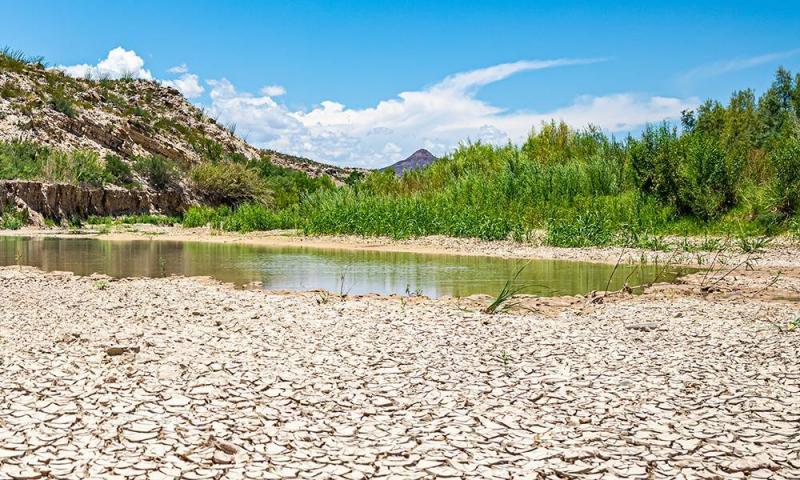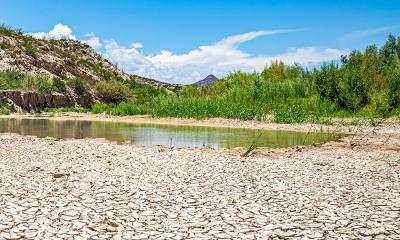A report by the American newspaper "The Washington Post" highlighted what it described as a "brewing war" between the United States and Mexico, amid water shortages in southern Texas that have decimated the sugar industry there and may slow growth in border towns. The report noted that the dispute over water between the U.S. and Mexico dates back decades and has become more urgent in Texas communities that rely on the Rio Grande River, with leaders from these communities currently demanding that the government address the crisis by urging the Mexican government either to share water or to reduce American assistance.
The water level in two major reservoirs has reached all-time lows, bringing some Texas towns close to collapse, according to "The Washington Post." The report also mentioned that this year's water shortage forced a major sugar cane factory to shut down, costing the region hundreds of jobs and a lucrative crop. Additionally, at least one border town is facing the possibility of temporarily halting new construction due to water scarcity.
Texas leaders have urged Secretary of State Antony Blinken to pressure Mexico and have called on the U.S. Congress to "withhold American aid until water flows from behind Mexican dams." An old treaty between the two countries stipulates that the U.S. must allow 1.5 million acre-feet of Colorado River water to cross annually, while Mexico must allow 1.75 million acre-feet of water to reach the U.S. every five years from the Rio Grande. This means that Mexico permits enough water for approximately two million American households annually, on average.
The report pointed out that Mexico has only allowed a quantity of water since November 2020 equivalent to what Washington hopes to receive in just one year, a situation that has persisted in consecutive years since 1997. The agreement does not impose penalties for failing to allow the agreed-upon amounts of water to pass, but non-compliance has caused the water levels in the Amistad and Falcon reservoirs within the U.S., near the Mexican border, to be at 28% and 12% of their capacity, respectively.
Mexican officials declined to comment on "The Washington Post" request regarding the issue, referring the newspaper to U.S. officials. Efforts to negotiate have stalled due to internal opposition in Mexico to reaching an agreement. One Mexican senator stated in local media that reaching an agreement "would make irrigation impossible over vast areas of the country and hinder growth and development along the country's northern border."
The newspaper indicated that the times when Mexico has complied with its commitments were due to hurricanes and heavy rains affecting the area. Both sides of the border are impacted by the water crisis, with researchers at the University of Texas reporting in December that crop losses would cost the southern Rio Grande Valley region in Texas approximately $500 million and about 8,400 jobs. In Mexico, farmers experience similar hardships, with some having occupied a dam in 2020 in protest against water being diverted to the United States.




